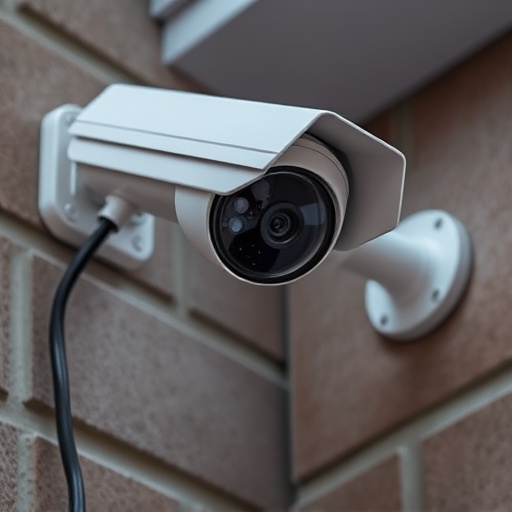Pittsburgh PA Homes: Save with Security Camera Insurance Discounts
Pittsburgh, PA residents can save significantly on their insurance costs by installing Security Came…….
In the ever-evolving landscape of security technology, security cameras have emerged as indispensable tools for surveillance, prevention, and investigation. This article delves into the intricacies of security cameras specifically in Pittsburgh, Pennsylvania (PA), exploring their impact, trends, and future potential within this urban center. “Security Cameras Pittsburgh PA” is a comprehensive term encompassing the deployment, technologies, and strategies involved in enhancing public and private safety through visual monitoring. By examining various facets, from historical development to technological innovations, we aim to provide valuable insights for stakeholders, policymakers, and technology enthusiasts interested in understanding this critical aspect of urban security infrastructure.
Definition: Security cameras, also known as surveillance cameras or CCTV (Closed-Circuit Television) cameras, are devices used for visual monitoring and recording within a defined area. They capture video footage, providing real-time observation and subsequent evidence for security purposes, crime detection, or risk management. In Pittsburgh, these cameras are strategically placed in public spaces, businesses, residential areas, and critical infrastructure to ensure safety and deter potential threats.
Historical Context: The use of surveillance technology dates back to the early 20th century, with the first CCTV system installed in London, England, in 1947. However, it was during the 1980s and 1990s that security cameras gained significant traction, driven by growing concerns over public safety, terrorism, and urban crime. Pittsburgh, like many cities worldwide, responded to these challenges by implementing security camera networks. The early systems were primarily analog, with camera signals transmitted to centralized monitoring stations. Over time, digital technology revolutionized the industry, enabling higher-quality footage, remote access, and advanced analytics capabilities.
Significance: Security cameras play a pivotal role in enhancing public safety, deterring criminal activity, and aiding law enforcement investigations. In Pittsburgh, these systems are employed to monitor high-crime areas, critical infrastructure like bridges and power plants, and large public gatherings such as sports events and festivals. They provide a layer of visibility that can prevent crimes from occurring or assist in identifying perpetrators, thereby contributing to a safer city environment.
The global security camera market has experienced substantial growth over the past decade, driven by increasing urban populations, terrorist threats, and rising crime rates across various regions. According to a 2022 report by ResearchAndMarkets.com, the global CCTV market size was valued at USD 17.8 billion in 2021 and is projected to grow at a CAGR of 11.5% from 2022 to 2030. This growth reflects a universal recognition of security cameras’ importance in maintaining law and order, protecting critical assets, and ensuring public safety.
Regional Disparities: While the demand for security cameras is global, the intensity of implementation varies across regions. North America, Europe, and Asia-Pacific are prominent markets due to advanced infrastructure, stringent security regulations, and high crime rates in urban areas. For instance, cities like New York (US) and London (UK) have extensive CCTV networks, whereas countries with less developed surveillance infrastructure, such as parts of Africa and Latin America, may have more limited deployment.
Emerging Trends: The industry is witnessing several trends that shape the future of security cameras:
AI and Machine Learning: Artificial Intelligence (AI)-powered analytics is revolutionizing video surveillance by enabling automated object detection, facial recognition, and behavior analysis. These technologies can identify suspicious activities, predict potential threats, and enhance overall system efficiency.
Hyperspectral Imaging: This advanced technology captures images beyond the visible light spectrum, allowing cameras to see through smoke, fog, or poor lighting conditions, thus improving their effectiveness in diverse environments.
Cloud-based Storage and Analytics: Cloud computing offers scalable and cost-effective solutions for storing and analyzing vast amounts of video data, enabling remote access and real-time monitoring from anywhere with an internet connection.
Integration with IoT (Internet of Things): Security cameras are increasingly integrating with other IoT devices to create smart cities and homes. For instance, they can be connected to intelligent traffic management systems or home automation networks for comprehensive security solutions.
The economic aspects of security cameras in Pittsburgh, PA, involve multiple sectors, including technology providers, installation services, maintenance, and law enforcement agencies.
Market Dynamics: The local security camera market is dynamic, with a mix of traditional vendors offering analog systems and newer companies specializing in digital solutions. Competition drives innovation, pricing, and service quality. According to a 2021 study by IHS Markit, the global CCTV market is fragmented, with numerous small- and medium-sized players alongside a few large manufacturers.
Investment Patterns: Pittsburgh’s city government and private entities have invested significantly in security camera infrastructure over the years. These investments are primarily focused on upgrading aging systems, adopting advanced technologies, and expanding network coverage to new areas. For instance, the Pittsburgh Police Department has implemented a city-wide CCTV system, enhancing their capacity for crime prevention and investigation.
Economic Impact: The economic impact of security cameras is multifaceted:
Job Creation: The industry supports various jobs, including camera installers, maintenance technicians, sales representatives, and data analysts. Local businesses specializing in security technology contribute to Pittsburgh’s economy.
Tourism and Quality of Life: Effective security measures, including CCTV surveillance, can enhance a city’s reputation for safety, attracting tourists and business investments. This, in turn, boosts the local economy and improves the overall quality of life for residents.
Risk Management for Businesses: Retail stores, offices, and industrial facilities invest in security cameras to protect their assets, deter theft, and ensure business continuity. These measures contribute to a robust business environment in Pittsburgh.
Technological innovations have been instrumental in transforming security cameras from basic recording devices into sophisticated surveillance tools.
High-Definition (HD) Cameras: The adoption of HD technology has significantly improved image quality, allowing for clearer identification of individuals and objects. These cameras capture detailed footage, enhancing the effectiveness of crime investigations.
PTZ (Pan-Tilt-Zoom) Cameras: PTZ cameras offer remote control capabilities, enabling operators to pan, tilt, and zoom in on specific areas of interest. This technology is valuable for monitoring large venues like sports stadiums or public squares.
Heat and Motion Detection: Advanced sensors enable security cameras to detect body heat and motion, triggering alerts even in low-light conditions. This feature is particularly useful in poorly lit areas or during power outages when other lighting sources are limited.
Face Recognition Technology: AI-powered facial recognition systems have emerged as powerful tools for identifying known individuals captured on camera. Pittsburgh has experimented with this technology to enhance public safety, especially in crowded spaces. While controversial due to privacy concerns, successful implementations demonstrate its potential in crime prevention and crowd management.
Network Connectivity: The evolution from coaxial cables to IP (Internet Protocol) networks has enabled security cameras to connect directly to the internet, providing remote access and control capabilities. This advancement is crucial for real-time monitoring and efficient data management.
Policies and regulations play a critical role in governing the use of security cameras, balancing public safety with individual privacy rights.
Local and State Laws: In Pennsylvania, the use of surveillance technology is regulated by various laws and guidelines. The Pennsylvania Privacy Law (Act 71) provides protections for individuals’ privacy but allows law enforcement and government entities to install cameras in certain circumstances. Pittsburgh’s city ordinances further specify requirements for camera placement, notification, and data retention.
Privacy Considerations: One of the primary concerns with security cameras is the potential invasion of privacy. Regulations address this by dictating:
Data Retention and Access: There are strict rules regarding how long video data can be retained and who has access to it. In Pennsylvania, law enforcement agencies may retain surveillance footage for specific periods, but private entities have more stringent guidelines, often limited by contract or legal requirements.
Despite their benefits, security cameras in Pittsburgh, PA, face several challenges and criticisms:
Privacy Concerns: The most prevalent criticism revolves around privacy rights, particularly regarding excessive surveillance and potential misuse of data. Balancing public safety with individual privacy remains a delicate task.
Technological Limitations: In certain environments, such as dense urban areas or during adverse weather conditions, security cameras may struggle with image quality and clarity, affecting their effectiveness.
Data Security and Breaches: As camera networks become more interconnected and data is stored in cloud-based systems, ensuring the security of sensitive footage becomes a significant challenge. Data breaches could compromise not just video content but also personal information associated with the footage.
Cost and Maintenance: Implementing and maintaining comprehensive security camera networks require substantial investment. Upgrading aging infrastructure and keeping up with technological advancements can be costly for both public and private entities.
Strategic Solutions: To address these issues, Pittsburgh could consider:
Case Study 1: Public Transportation Surveillance
The Pittsburgh Regional Transit (PORT) authority has successfully deployed security cameras throughout its bus and light rail network. These cameras have improved passenger safety, deterred vandalism, and aided in crime prevention. By analyzing footage, PORT can identify patterns of anti-social behavior and proactively address issues like fare evasion or aggressive panhandling. The system also enables efficient investigation of accidents and incidents, enhancing overall service quality.
Case Study 2: Smart City Integration
Pittsburgh has been recognized as a smart city leader, integrating security cameras with other IoT devices to create a connected urban environment. The city’s CCTV network is linked to advanced traffic management systems, enabling real-time monitoring of intersection congestion and traffic flow. This integration allows for dynamic route planning and efficient emergency response. Additionally, smart waste bin sensors work in conjunction with security cameras to optimize garbage collection routes, further enhancing operational efficiency.
Case Study 3: Community Engagement Programs
The Pittsburgh Police Department has initiated community engagement programs utilizing security camera data to build trust and improve relations between law enforcement and residents. By sharing anonymized footage of community events and activities, the department fosters a sense of partnership with local businesses and citizens. This approach helps identify potential crime hotspots and encourages proactive reporting, making the city safer for all.
The future of security cameras in Pittsburgh, PA, is shaped by technological advancements and evolving urban challenges.
Growth Areas:
Enhanced AI Integration: Artificial Intelligence will continue to play a pivotal role, with improvements in facial recognition, object detection, and predictive analytics. These technologies can anticipate potential threats and automatically trigger appropriate responses.
5G and Edge Computing: The rollout of 5G networks enables faster data transmission and processing capabilities, allowing for real-time video analysis at the edge of the network. This reduces latency and enhances the overall effectiveness of security systems.
Hyperlocal Surveillance: There is a growing trend towards hyperlocal surveillance, focusing on specific neighborhoods or areas with higher crime rates. This targeted approach could involve smart sensors and cameras installed in problem zones to provide real-time data for law enforcement and community leaders.
Emerging Trends to Watch:
Drone Surveillance: Drones equipped with high-resolution cameras and advanced sensors offer new perspectives for monitoring large areas, hard-to-reach locations, or special events. However, their use raises privacy concerns and requires stringent regulations.
Quantum Cryptography: As data security becomes more critical, quantum cryptography promises unbreakable encryption methods, ensuring the safety of surveillance data from potential cyber threats.
Strategic Considerations:
Data Governance and Privacy: With the proliferation of camera networks, Pittsburgh must update its data governance policies to align with evolving technologies and ethical standards. This includes clear guidelines on data retention, access, and anonymization to protect individual privacy.
Community Engagement and Transparency: Building trust through transparency is essential for successful security camera initiatives. Engaging with communities, sharing success stories, and providing accessible information about surveillance programs can foster public support and encourage proactive reporting of suspicious activities.
Public-Private Partnerships: Collaborating with private technology providers and local businesses can bring innovative solutions, shared resources, and cost savings while ensuring the city’s security needs are met.
Security cameras in Pittsburgh, PA, have come a long way since their early analog beginnings, evolving into sophisticated surveillance tools that play a crucial role in public safety and urban management. From global trends to local implementations, this article has explored various facets of security camera technology, its impact, and future prospects. As Pittsburgh continues to grow and evolve, a balanced approach that leverages the benefits of security cameras while addressing privacy concerns and technological limitations will be essential for creating a safe and vibrant city environment.
By embracing innovation, fostering public-private partnerships, and prioritizing data governance, Pittsburgh can ensure that its security camera infrastructure remains effective, efficient, and responsive to the changing needs of its diverse communities. The future of urban safety lies in harnessing the power of technology while upholding ethical principles and safeguarding individual liberties.

Pittsburgh, PA residents can save significantly on their insurance costs by installing Security Came…….

Pittsburgh, PA is witnessing a surge in advanced security camera technology, with manufacturers intr…….

Pittsburgh, PA, aims to expand its security camera network with indoor and local cameras to bridge s…….